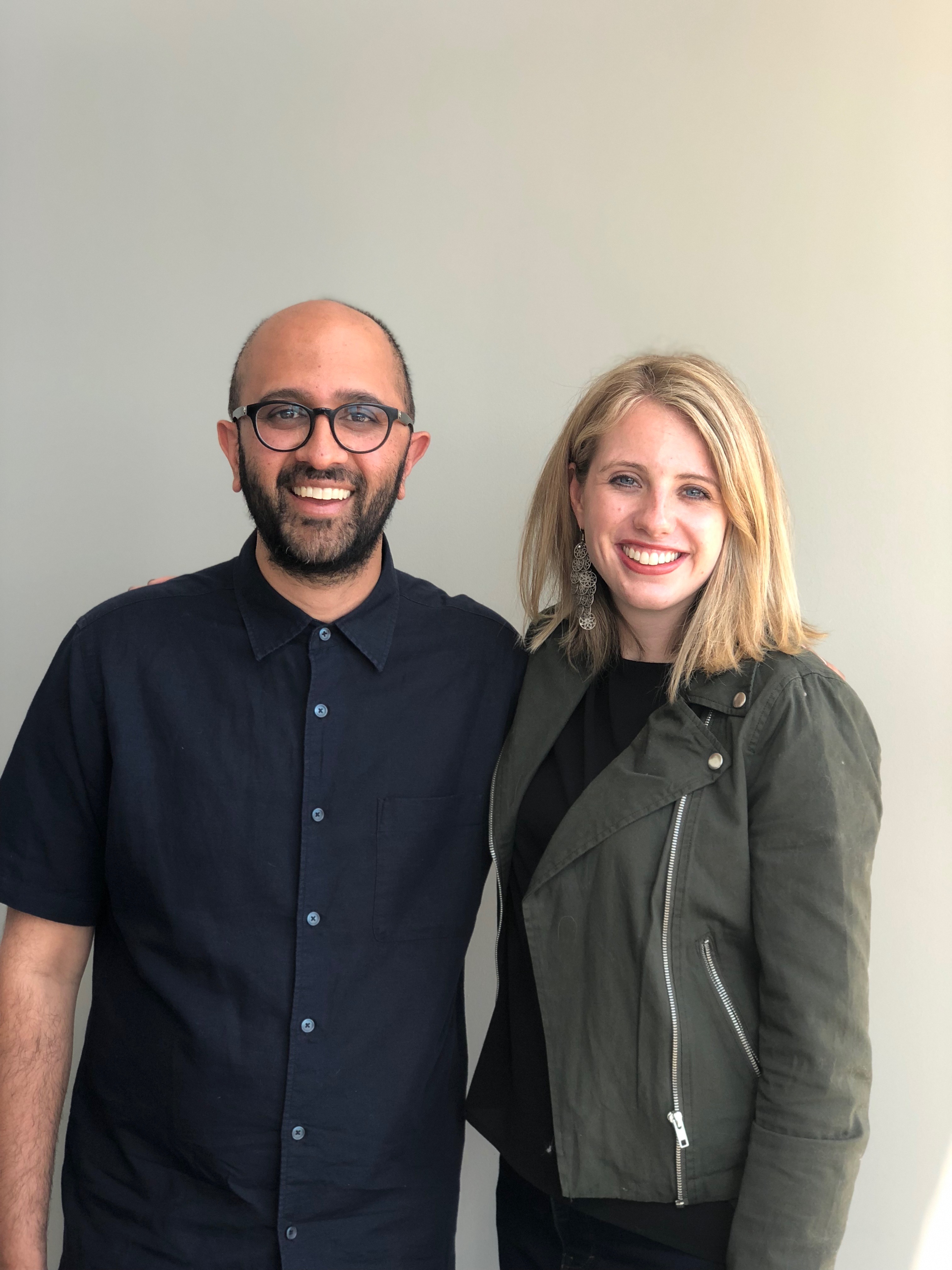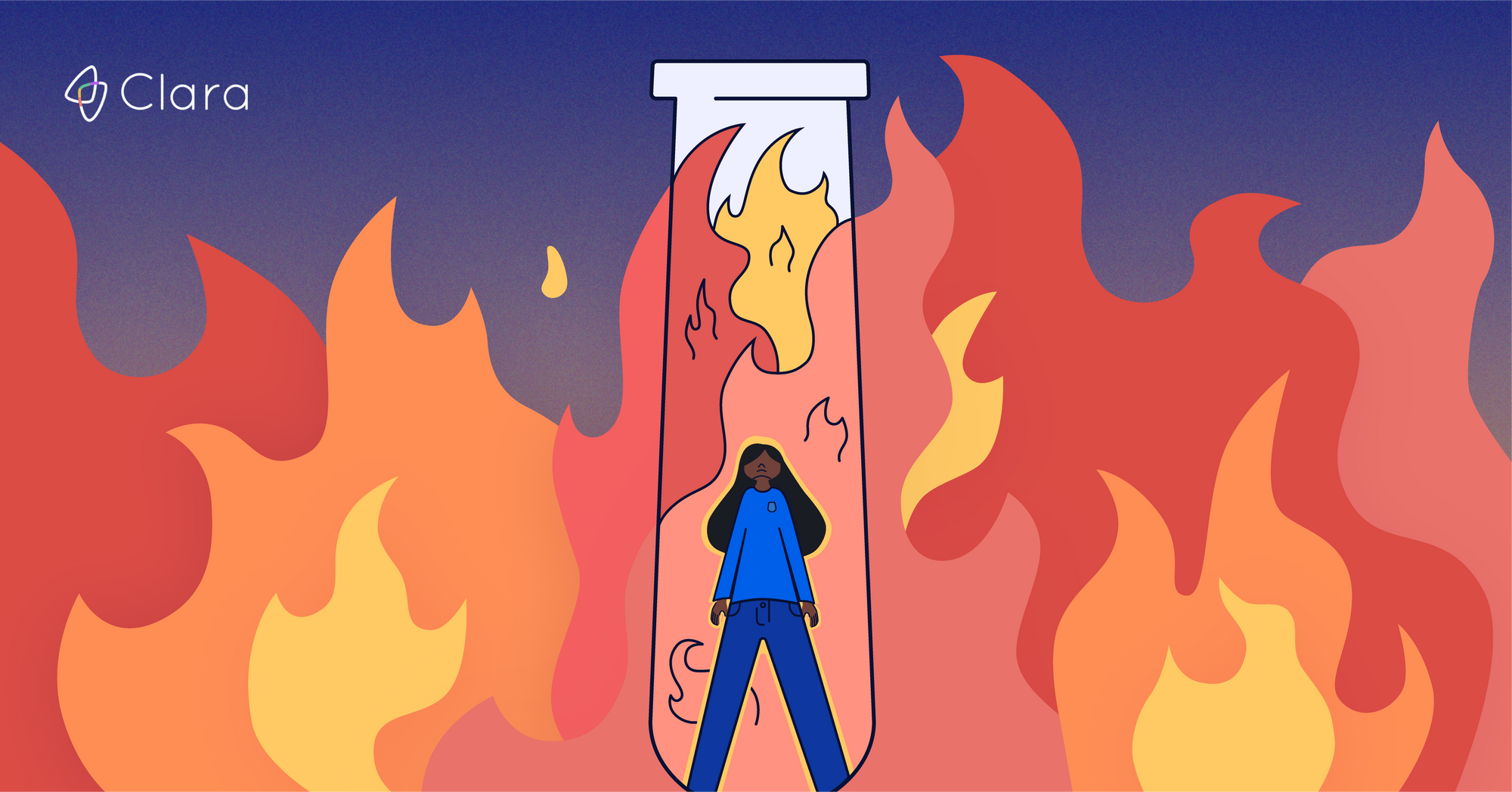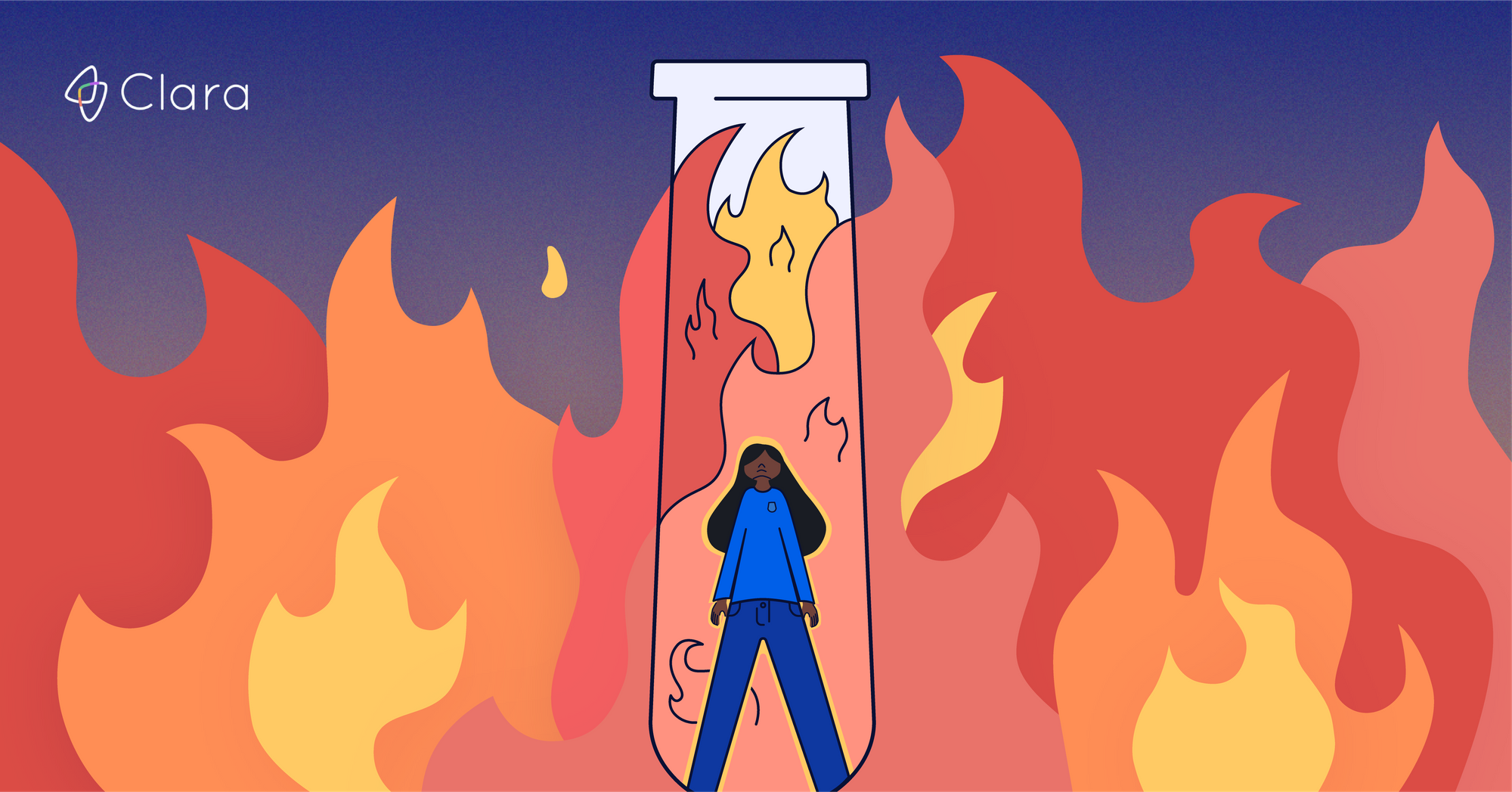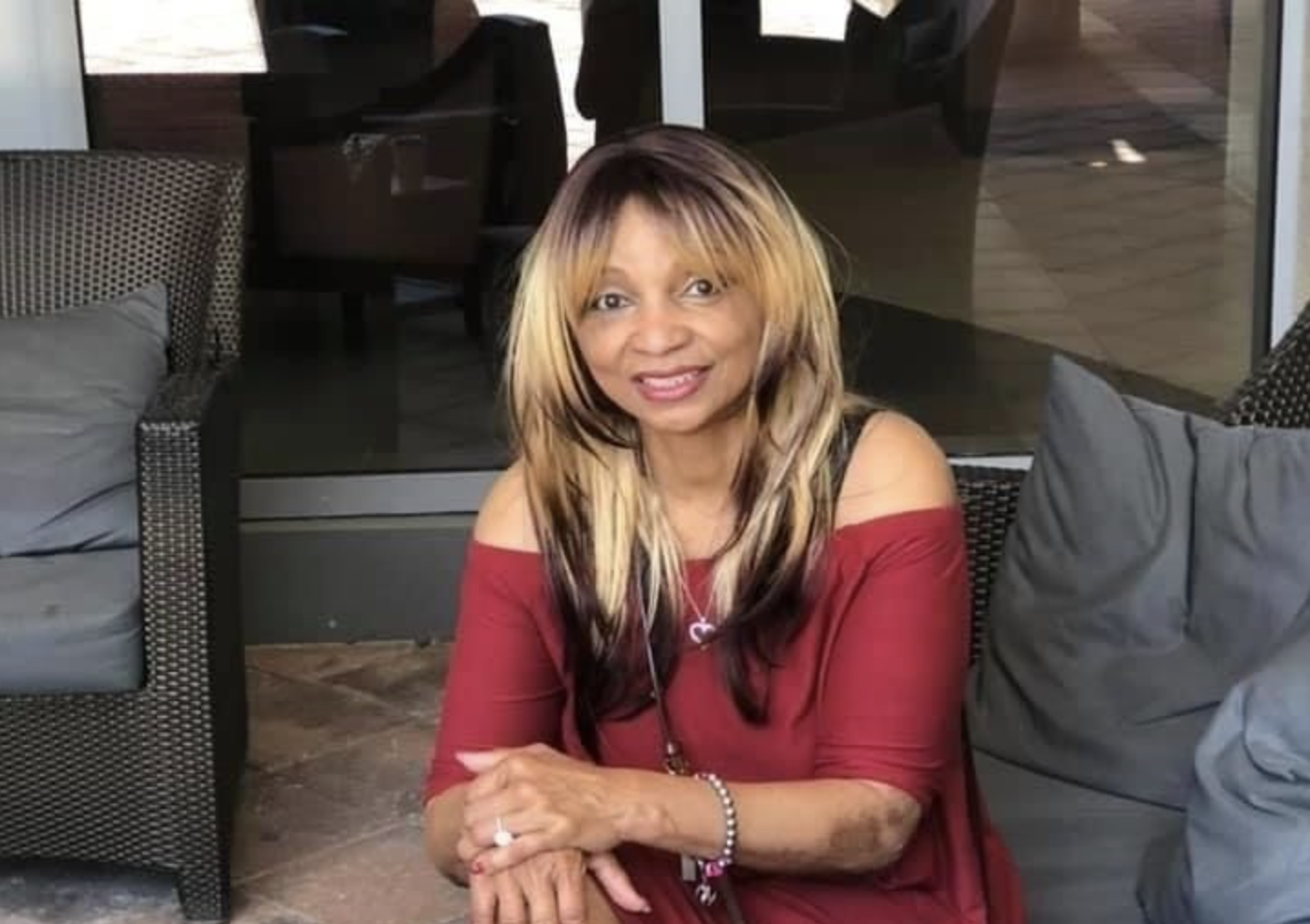Our latest Patients Have Power episode is called "Our voice is our voice." (You can subscribe to the podcast at Apple Podcasts, or listen to it with the media player above).
In this episode, I'm joined by Adi Goradia, an entrepreneur here in the lovely Silicon Valley (and Clara investor!). Adi speaks with us about taking a year off to fight a brain tumor with a clinical trial, multiple specialists, and a surgery on his brain...while he was still awake!
Below is a transcript of the episode for your reading pleasure!
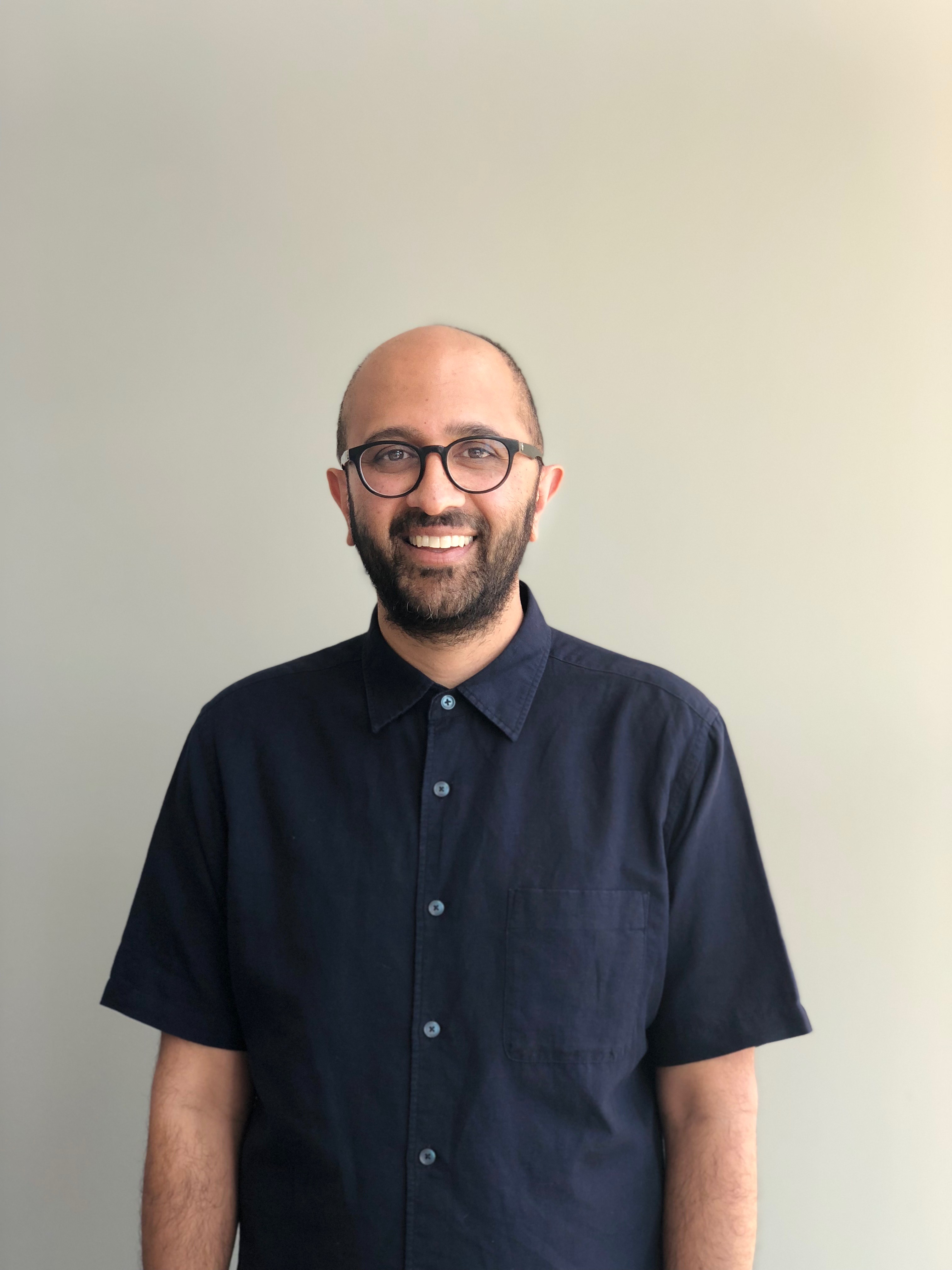
Lilly Stairs: Hi everyone, today we have Adi with us and he is going to chat with us, about his really crazy, incredible medical journey that he has just been on, in the past year. He was diagnosed with a Grade two Astrocytoma and has really embodied, what patient power means. And, so, I'm so excited that we have him here to day.
Adi is a recent investor, in Clara Health which is how we got to know him, and we're really pumped about that, because, he's a patient who completely understands what we're doing and why we're doing it. He's super excited to be here, so thank you for joining us, Adi.
Adi Goradia: Hi, hi. And, thank you. Thank you for having me.
Lilly Stairs: Of course!
Adi Goradia: Also, in reference to how I also found Clara - the mission to help empower patients inspired me because it gives people energy to find the solutions for themselves. Because, we have that ability and have that power. We all wake up and that's really cool.
To talk about my story, over the last year:
So, I'm 33 years old. And, around age 31/30, we had started working, and had worked immensely hard, because we sold our company and we needed to relaunch our new product.
And, at the end of that experience, what I noticed for the first time was, I had a really crazy panic attack. This panic attack was something foreign to me, than I'd ever experienced. But, the funny thing about it - right after that is when I started noticing, I was not finding words. And, when you say, Grade two Astrocytoma, what we're talking about is a brain tumor.
And, this is when I first started to dig into, “what the heck is causing me to not find words?”
Adi Goradia: You'll see through this whole thing that I talk a lot; I like talking. So I like finding my words.
Lilly Stairs: We have that in common.
Adi Goradia: I like finding those words. And, so then, we go from there into three years later, on 2017, April Fool's Day.
I just go in for my regular eye appointment and again, like I said, for the last few years I've been wondering, “why am I missing words here and there, that I know so prevalently?” And, we find out from my eye appointment that my top right vision, both eyes, is gone and, we're like, “whoa.”
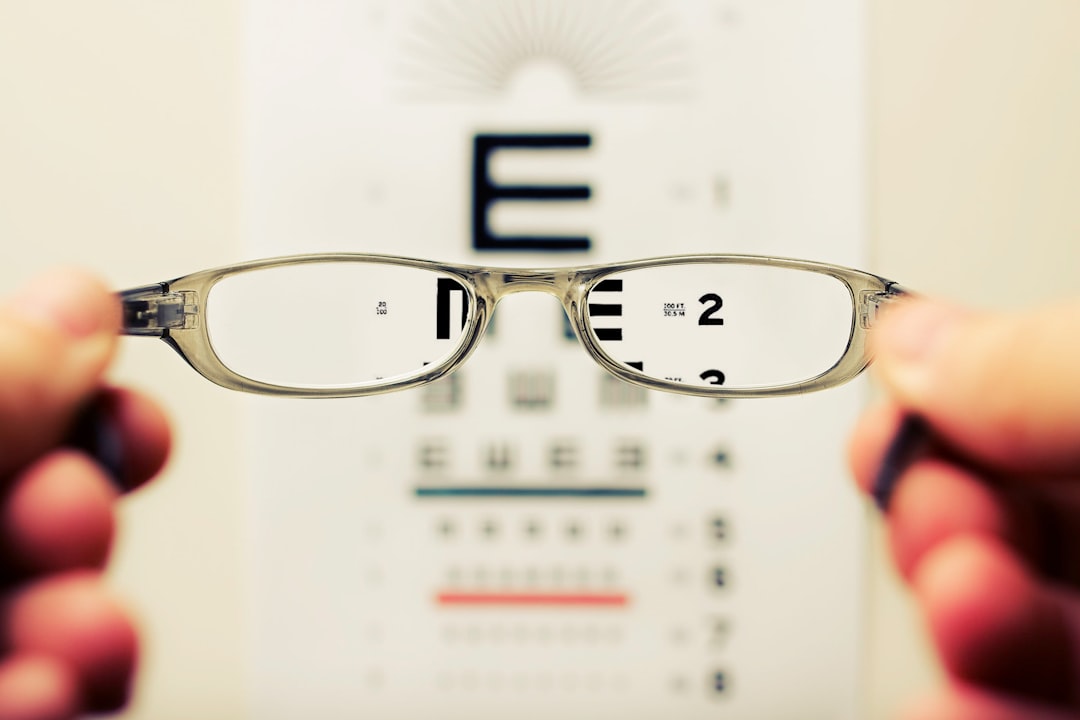
The optometrist is like, “Okay, your eyes are in great shape, this most likely means that it's either a stroke, or a tumor.” This is on a Saturday.
Lilly Stairs: Oh. On a Saturday, April Fool's Day.
Adi Goradia: Yeah and so, the other thing about me, that's kind of consistent, is I'm a bit of an efficiency desirer. And so because of that, I was in an odd situation, at this exact moment.
My wife, she's a doctor; she's an Allergist and worked at Kaiser. And, because of that, good insurance was offered to her, and I was thinking of switching over to it. So I added my name to hers, and I also had United Healthcare from my own company, at the moment, because I hadn't transitioned yet.
Lilly Stairs: Got it. Got it.
Adi Goradia: Because of this, all of a sudden, I didn't even have a primary physician, with Kaiser, or anything like that.
But, I immediately was like, “hey, that'll be the faster way to get to all of the different people I'll need to meet to get to the point where I can go do an MRI, and find out the bottom line. "What are we looking at?”
And, so, on that Monday, April third, I call Kaiser. And we're able to find out how to call someone with my primary physician. Then, that turned that into them saying, “come in and see an ophthalmologist, by Monday.”
By Tuesday, the Ophthalmologist said, “go get it, go get an MRI.” By Tuesday, April fourth, we now know, this thing is quite large.
If you don't mind me saying, it was the size of a baseball.

Lilly Stairs: Wow.
Adi Goradia: And, when we found out at operation that this thing had been growing in me for the last 20 years.
Lilly Stairs: Wow.
Adi Goradia: Slowly, but steadily. And that's why I was able to also respond to it - we have very powerful minds. That muscle in there, if it's at the right pace, can say, “Okay, let's remodify. Let's change this, let's change that.”
Lilly Stairs: So, I just wanna pause for a minute there, to ask you about this. Because, to get that number of appointments, within the span of a week, is really remarkable. Not even a week, a couple days.
And so, for you to be able to do that, is really remarkable and it's because you said, “Hey, you know what, I am in lucky position because I have two insurances going right now. I'm gonna go with the one that's gonna give me the best chance of getting the care I need.”
And, this was all you, on your own, figured this out. Because it's crazy when you hear, “oh no, you have to set up an appointment with your primary care.”
Adi Goradia: That's right.
Lilly Stairs: It's like, we have so many patients, who are in such a bad place, right? They have total body arthritis, can't move, or are really sick, or have a tumor, whatever it might be.
But, oh, no, with our healthcare system, you have to see your primary care first, and then get referred to a specialist. And that can take weeks, or months.
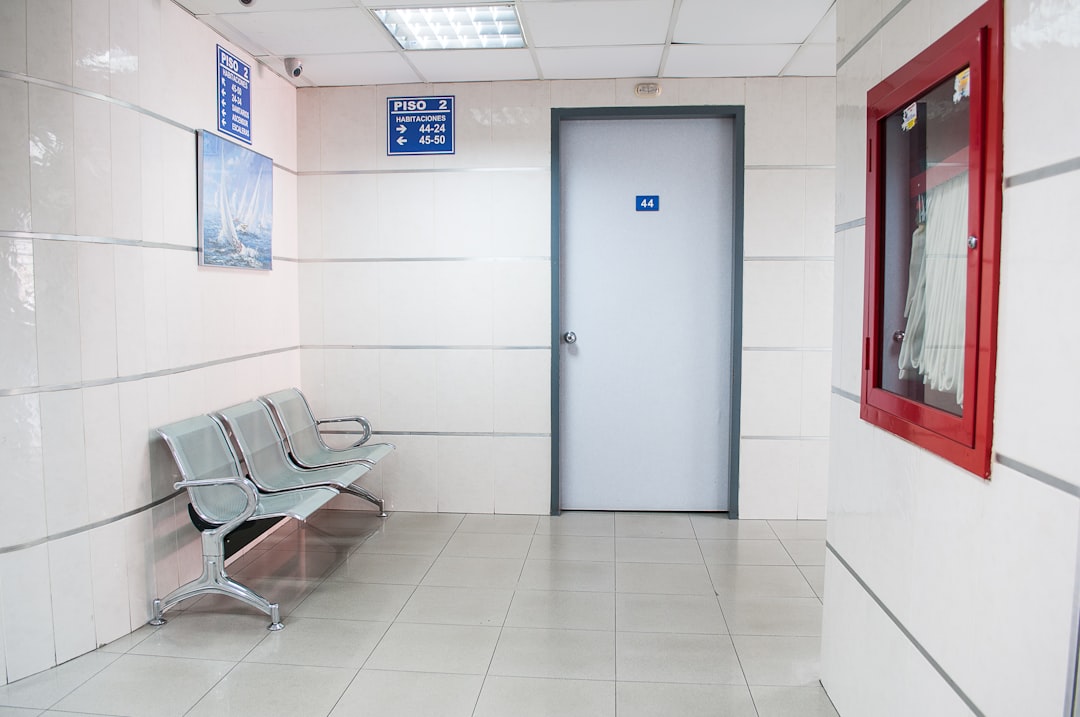
So, for you to have done this, within less than a week, is wow. I mean, really remarkable, and a great example, while you did have special resources - it is a great example of patient power.
Adi Goradia: Thank you for capturing that. 'Cause it was a total hack, and I was able to play it efficiently because of the situation.
After growing up, my first job was at Google, as an analyst on search quality. And so, that's kind of my core of how I think through these problems. And so I look, and I connect dots between the different kinds of resources around me. That allows me to do these things, and that's what made me realize, again, why I was so engaged here. Why I'm so engaged in insurance, why I'm so engaged with how I run this opportunity, for everybody.
Because, at the bottom line, the thing is that the end result is equivalent. Like, if somebody else has a situation similar to mine, the end results is the same. The bottom line of getting the same kind of procedure and the same kind of opportunity, is just to be able to do that.
Lilly Stairs: That's the goal, we want that. We want that for people who don't have insurance and for people who do have insurance. We want to make it happen so you're not going into crazy debt trying to make it happen either.
Adi Goradia: Correct.
Lilly Stairs: Okay, so here we are, you've now been diagnosed. You've got this tumor, the size of a baseball, at 30...
Adi Goradia: 30. How old am I?
Lilly Stairs: Yeah.
Adi Goradia: Yeah, 33.
Lilly Stairs: Oh jeez, oh gosh. So, what's next?
Adi Goradia: Yeah. So, what is next? So, we go from there, we find out and it's a day with a little bit of tears, because, as I come out of my MRI and they say, “go to the emergency room.” To check on this thing, I guess, 'cause they wanna do a CT scan, 'cause they said they found something quite large and they want to check the rest of my body, to see if it's been spread.
And, so, very thankfully, that day, on Tuesday, I was able to go home. I bring this up because, yeah, what happened that moment was this was instilled in me. Based off that core, first experience, I was like: Okay, do my homework, dig in as hard as I can.
And, I bring this up because I was very lucky with friends and family to support me. Like I said, my wife's an allergist, her dad's a nephrologist, mom is a pediatrician, my sister is a hematopathologist, all of these people...
Lilly Stairs: You guys could start your own hospital.
Adi Goradia: Yeah, it's this weird crux that I had grown up in.
Lilly Stairs: Yeah.
Adi Goradia: When my sister would call me, growing up, she would tell me about cases and I hear these things and it's a different language, but it started setting into me.
Lilly Stairs: Yeah.
Adi Goradia: So, I turned those into realities, in this direct moment where I started digging really hard. And that was where Google helped a lot - to just get to the bottom of what other kinds of cases, what other kinds of stories, what other kinds of things can I find in the forums, anything of the nature.
But, I also aggregated what I found with the people who I just mentioned, that they have some of that specific knowledge. Why has this become so crucial? It's because, I knew myself. Right?
I knew the thing that I'm trying to fight, for me.
Then, we work as a team, because they are experts and experts are gonna have a lot of that knowledge. And, that means, that real quickly, as fast as we possibly can, we're gonna be able to aggregate the answer that we wanted to arrive at.
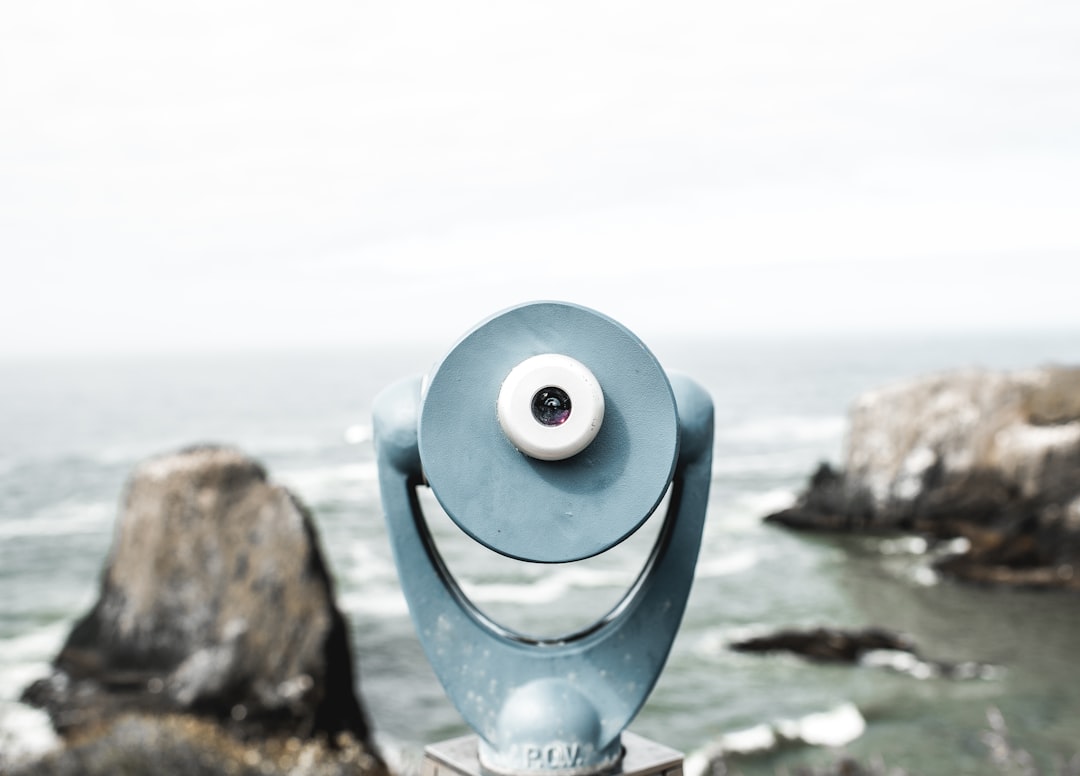
Adi Goradia: Again, why I like search engines, for that matter, is because they can process with a level of logic. And, one of the things I talked to you about before, with this tumor. It was in my dominant side, between my Broca and my wernicke, which are basically the places where we calculate the words we're gonna say.
So, in the same way you do a google search and then you start saying, “sky.” And then, it mentions to you, "blue", because most people are thinking of a blue sky. That's how our mind works and that was the side that was most crucially impacted by this.
Lilly Stairs: Terrifying.
Adi Goradia: And, that's why it was hard on me.
Lilly Stairs: Yeah.
Adi Goradia: Because as we go through this, it was like, “oh you're high functioning, so we're gonna have to really be careful how much we remove.” Because we could actually remove some of the lines that connect those dots, that allow you to complete your sentence. Which of course is crazy important to me to be able to do that.
Lilly Stairs: Of course, and here you are. You're 33, in the prime of your life and brilliant, doing some really amazing work. And, you don't wanna lose that ability to say your wife's name. Right? And, to interact and engage with people, on a regular basis.
Adi Goradia: That's right.
Lilly Stairs: Yeah.
Adi Goradia: When you mentioned 'wife's name', that's what kind of closes this loop of what we were figuring out to resolve again.
So, in between, I go and meet the neurosurgeons at Kaiser. And from there, we learn about what the scope is of how much they feel comfortable about being able to remove the tumor.
Adi Goradia: The core of a situation like this is to get as much of the physical tumor out as possible. That allows them, with more comfort and assurity, to know that the response to it could either be radiation/chemo, or, maybe we can sit and watch.
I, of course, for all the things I'm saying, wanted to sit and watch. Because radiation and those things, they attack directly on your memory.
And, for me, I wanted to keep as much of my memory as possible through this period. It's crucial for me. If I don't have that, then my energy kind of weakens - and there is a physical part of this recovery.
And that's why when you mentioned 'wife's name' - May 2nd, was my operation; of 2017. May 3rd is our anniversary.
Lilly Stairs: Right.
Adi Goradia: And, at 8:00 P.M., all of the medication stuff wears off after the operation by that point. I wake up after a nap and I'm looking at my wife, and I can't find her name.
I can't find “Mel.” And, I'm like, “AHHH”. And, that's how this thing starts.
From there, the response to it grows. It grows into "okay, see the speech therapist, do these at night, quiz it, push it, and flex that muscle as hard as I can".
I went back to college to take a class so I could take tests and do all those experiences - get engaged in that way again. And, that's when I ended up getting to respond to it.
Lilly Stairs: Wow. So, you fought really hard to make that happen. You did a lot, to go through all that, I can see it in your face.
And, I know we're on a podcast, so nobody else can see your face, but I can see how you are just like, “I am going to do everything I can, to overcome this and to make sure that I can go back to who I was, and who I truly am.” Right?
Adi Goradia: And, you're totally right, but the loop of it, is also slightly different.
It's not like it was a team - it was a crew of people and we all took care of each other. And, again, these people did it simultaneously. And that's how we were able to achieve the goal that we were looking for.
That's what I started to see about this whole process. Is that it is a team - and that was one of my biggest things I heard in previous podcasts that you've done. That the doctors, they don't care. The oncologist, the neurosurgeon - they don't care about who you go with, they care about you finding the solution.
Lilly Stairs: The right treatment.
Adi Goradia: That's all they want.
Lilly Stairs: And, I'm actually glad you brought this up, 'cause I wanna call this piece out, when we spoke previously. You talked to a few different surgeons, correct?
Adi Goradia: That's right. That's right.
Lilly Stairs: And, you made the decision. Can you tell me a little bit about how you made the decision to go with the one you went with?
Adi Goradia: It was a bit of a tough day. I did have to drive my car really fast for a moment, to just clear my head and got an emotional response (as I am a bit of an emotional person).
But, what happened was I made a really good relationship with the Neurosurgeons out there at Kaiser. And we were talking about how we were gonna get coffee with each other after this operation.

So, we were gonna hang out and talk about stuff, 'cause we had a lot of similar interests. And, all of a sudden now, I'm in this mode where I met this other team, and I'm like, "based on just the stats, I can tell you have a lot more".
And, the thing is, you know how many cases there are? There's like 20,000 of the 350 million per, in 2015, of glioma of this kind.
Adi Goradia: So, we're talking about very small percentage of these kind of operations. So, then there is an element of wanting to find the person. The one who's most confident (in the artistic way), and able to feel the most comfortable with engaging in this operation.
Again, my bottom line goal (and it took a while for me to learn that) was “I need to get as much percentage of this thing removed as possible”.
Lilly Stairs: Yes.
Adi Goradia: And, understanding the nuances of that is where it does get kind of weird.
'Cause it's not just like taking something out of your pocket. It's gonna be within these different ranges, as I described, of the high functioning side of my mind. So, you have to be careful.
Again, how we discovered it was that it was putting pressure on my vision, which is the wiring. So if we dig too deep, I might lose more of my vision. These are the things that start to become what the surgeons are looking into when they're looking at your MRI's.
And, you're wanting to find the person that, with utter confidence, is gonna say:
“Yeah, I can take most of that out and I'm gonna make sure that you're gonna be talking afterwards.”
Right?
And that's where we had to get to the bottom of what was possible. That's how those meetings went, and that's how those conversations went.
We're very grateful for all of them. They're all incredible, incredible. And Dr. Berger, who had the operation with me at UCSF. The bottom line of this operation here is that you're awake, and we're talking for seven hours.
Lilly Stairs: Which I can't even, I can't even begin to imagine, being awake, during a surgery.
Adi Goradia: Yeah, it's interesting. I'll show you pictures.
Lilly Stairs: Oh gosh. I don't know if I can take it.
Adi Goradia: Okay, okay. But, it was. It was very engaging in this way. And I think again, that group, the crew, we were all a team.
And that's the feeling that you get out of the moment. And, so, there is a lot of energy inside of it, and from that, I'm very thankful.
Lilly Stairs: And how did you.. It's hard, and even for myself, as a patient, I've had different physicians, where you sort of have to have that moment where you break up, with your physician, for lack of better word.
Adi Goradia: Sure, sure.
Lilly Stairs: And, I know that, that's something that a lot of patients really struggle with and coming to the point to say, “okay, is it okay for me to be doing this? And how do I go about, doing it?" And, so, how did you communicate that to the physician, or did you communicate it at all? Or?
Adi Goradia: It's so.. And that, yeah.. It was harder on me, totally, than it was harder on them, at all. For them it's like "what's the difference between empathy and science and all those things" right?
Lilly Stairs: Yeah.
Adi Goradia: Their response is like, “Cool. Homework was done, we're just looking forward to you getting the correct operation.” And that's all that any of these doctors cared about.
Lilly Stairs: Great.
Adi Goradia: For me, it was hardest from that emotional side.
Lilly Stairs: Yes.
Adi Goradia: 'Cause where I'm sitting in the middle of it, I'm not a doctor. I'm making commitments, in the same vein as when I make that commitment to something, I feel an obligation. And that's what was crunching me.
But, the bottom line is no matter what, we're all humans and we wanna wake. We want all of us to wake up, because that's cool. And, that gets us to the point where we get to solve some of stuff together, and progress gets to occur.
And so, that's the same way, I will tell you for sure, that these doctors feel.

Lilly Stairs: Well I love that and I think it's really important for me, personally, even to have that reinforcement. And, I know for a lot of our listeners, it's important to hear something like that. So, thank you for sharing.
Lilly Stairs: So, you've now gone through the surgery.
Adi Goradia: Yeah.
Lilly Stairs: How much of the tumor did they remove?
Adi Goradia: They took out 90 percent, and that's a really great sum of it. Because what it allowed, was for my brain to kind of go back to its normal space, and to take the pressure off. Which I'm really, really grateful for.
Lilly Stairs: Good.
Adi Goradia: And the other thing that kind of corresponds with the recovery piece, was... So, like I said Grade two, which is a little bit slurred growing.
Now, the second it goes to a three or a four, the pace increases at a dramatic, dramatic rate. And those have very limited response to it, overall. So ending up in a place with a grade two is something, again, you see a success, I'm so grateful for it.
They take the tumor and then they do a lot, the moment after that operation. They're doing a lot of research, on it, and they're figuring out exactly what the sides are (kind of) inside of it. Two people to figure out and understand how to officially respond to it. And, from there, I was allowed to be in a trial.
Adi Goradia: The trial is specifically for these kind of cases. And it's a bit of an immunity and it's a bit of strengthening inside of me that gives me the chance to win.
Maybe some of those cells emerge and that Grade three, kind of thing, is happening. I may have some internal immunity to fight against it, inside of myself.
Lilly Stairs: Because this clinical trial, is a vaccine, correct?
Adi Goradia: That's right.
Lilly Stairs: And what compelled you to decide to go into it? Tell me what your options were.
When you did the surgery, 90 percent of the tumor is out, what are your options in front of you?
Adi Goradia: So, the options in front of me are this. Again, very thankful for that initial operation, leaves me with the opportunity to, hold off, on any kind of direct response.
If there was enough, volume wise, left, then they were gonna definitely go for that chemo or something in that nature, 'cause they just wanna make sure they get as much out, in one time period as possible.
Lilly Stairs: Sure.
Adi Goradia: But, because of how it went, we had a little bit of that distance that we were able to take advantage of.
That's what then, gave me, the option of engaging with this clinical trial. I could have said no - but the thing is... Well, you know one of the things about our bodies and all of these things, is everything's always changing and evolving.
And so, there's gonna be all these new things, that we don't know much about yet, but that are very valuable. That's the 'I' part of this story where I get to do my own research and I get to do my own things to get to the bottom line of what I feel a very distinct interest in pursuing.
The loop of it is, because I had my operation at UCSF it put me at a closer connection with some of these kind of clinical trials that are available.
Lilly Stairs: Yup.
Adi Goradia: Right? So, that closes the loop, really quickly and very directly. Because again, my oncologist was also was just very familiar with this stuff, and we could talk about it.
Lilly Stairs: So, did your Oncologist recommend the clinical trial?
Adi Goradia: Yeah, we worked together on every understanding, what the requirements were, and what the limits would be.
The high level of no feeling, lack of confidence in it, was easily explained to me. And, from there, it's just about if I meet the standards to engage. If I did, I will engage.
Lilly Stairs: Yes, yes.
Adi Goradia: Again, those kind of conversations and stuff, I got to have, totally there, with my oncologist. And that's what I'm trying to say, is I wanna connect those dots and close that loop a little easier.
Lilly Stairs: For everyone.
Adi Goradia: So for some other country, or some other state, they'll have better access to finding something like this, if it's an opportunity that they want to.

Lilly Stairs: Absolutely, because there's a lot of physicians who, ultimately, don't bring up clinical trials, as an option. You know? And, then there's a lot of different reasons, why that might not happen, right?
So, it's either:
- Maybe the physician doesn't have time to keep up with what's happening, because they have these (10 minute or less) windows to see their patient and that's what they're focused on.
- Or, maybe they don't wanna refer, they're not doing any clinical trials at their hospital and they don't wanna refer patients out of their hospital.
And, so, there are certain patients who, do have the luxury of hearing about clinical trials, as an option. Well, there are others who have to go out and maybe hear about them on their own.
And so, I'm sure that it gave you more confidence, though, to hear this coming from your doctor as a recommendation, right?
Adi Goradia: And that I guess was lucky. And that's where the stats come in - they're all accomplished, they're all available. The description of it, and all the specifics of it. And, if that can then, be connected, to you and that can start the full loop.
'Cause, our voice, is our voice, and I know if I talk to any of my doctors and I mention something, they'll look at it and then they'll probably say, “oh, let's dig in a little deeper.”
And then, from there, these things can kind of proceed. And that's kind of the natural event that we wanna stimulate a little bit.
Lilly Stairs: And, did you do, like your oncologist brought it up, did you go home and Google it? Did you doctor Google it and see what's going on?
Adi Goradia: Yes, and it had kind of has a good video on YouTube going through the whole thing and explaining it, so I could watch that and I could get a lot of context of familiarity.
Lilly Stairs: Okay, great. So you did, you looked into it. But when ultimately made the choice, were you afraid about doing a clinical trial?
Adi Goradia: No.
This one's harder for me to respond to, just because of the fact that the volume and nature, of the situation, makes me go like, “well.” Right?
Lilly Stairs: Yeah.
Adi Goradia: Let's go for it.
Lilly Stairs: Let's do it.
Adi Goradia: Also, it's because a lot of good energy, a lot of good folks, and a lot of the group really helps people. These things where you can deal with it.
Lilly Stairs: Yeah, you've got a good team supporting you.
Adi Goradia: Yeah.
Lilly Stairs: And driving you and helping you feel good about it.
Adi Goradia: Yeah.
Adi Goradia: So, that's why I wish for everyone just to open up themselves. Feel free and comfortable to open up to whoever they feel comfortable opening up with, and there could be a lot that you'll process that way.
Lilly Stairs: Yes.
Adi Goradia: For yourself.
Lilly Stairs: And, so, what's next? What's next for you?
Adi Goradia: What's next? Hmm.
Well, shortly, I am gonna go back to work. I was on disability for about a year, as per recommendation from my oncologist.
Lilly Stairs: Which, I'm sure was hard for you, because you're like...you seem like a go-go-go-go person.
Adi Goradia: Yeah. So, I've been wanting to jump back in, so I was getting quite excited, about that. But, like I was saying before, my wife is an Allergist. She's been doing her fellowship and so, she's been quite busy as well.
And so, we have the luck before I go back to work to take two weeks off. I'm gonna go see The Grand Canyon and I've never done this and I've never done that. We're going for a drive.

Lilly Stairs: Yay! And I'm glad you're gonna take some time off and just appreciate life... I think we all get so caught up in trying to go-go-go and do-do-do and sometimes it's like, “take a break, relax.” Especially, someone like you, who's a startup guy and you can end up working, crazy hours, right?
Adi Goradia: Sure. I'm sure you are already.
Lilly Stairs: Self care. Well, you know, I've learned, self care, is really important when you're a patient.
Adi Goradia: I couldn't agree more.
Lilly Stairs: Yeah, you've gotta make sure that you're taking the time to do that. So, my last question - this has been such a fascinating conversation.
But, my last question for you, is: what does, patients have power, mean to you?
Adi Goradia: Okay - so if I were to put it this way:
The hippocratic oath, something we're all heard of, that a doctor gives on their first day they're gonna go to med school. I want all if us, in first grade, to say that. To give ourselves the hippocratic oath.
We're gonna pay attention to our bodies, and pay attention to these things. And we're gonna be able to then, have the correct conversations, at the correct levels, as we discover more.
The doctor themselves, they are an expert. They might know less about their own physical situation than they know, in their heads, about the science and the math and the things that they have memorized, and the languages that they have basically learned.
In our bodies, we have that opportunity to become more familiar with it. And I appreciate that, for everybody. And, I only wanna support that and I only wanna help out there.
Lilly Stairs: I love that answer. What a perfect way to end, this podcast. Thank you so much, for joining us.
